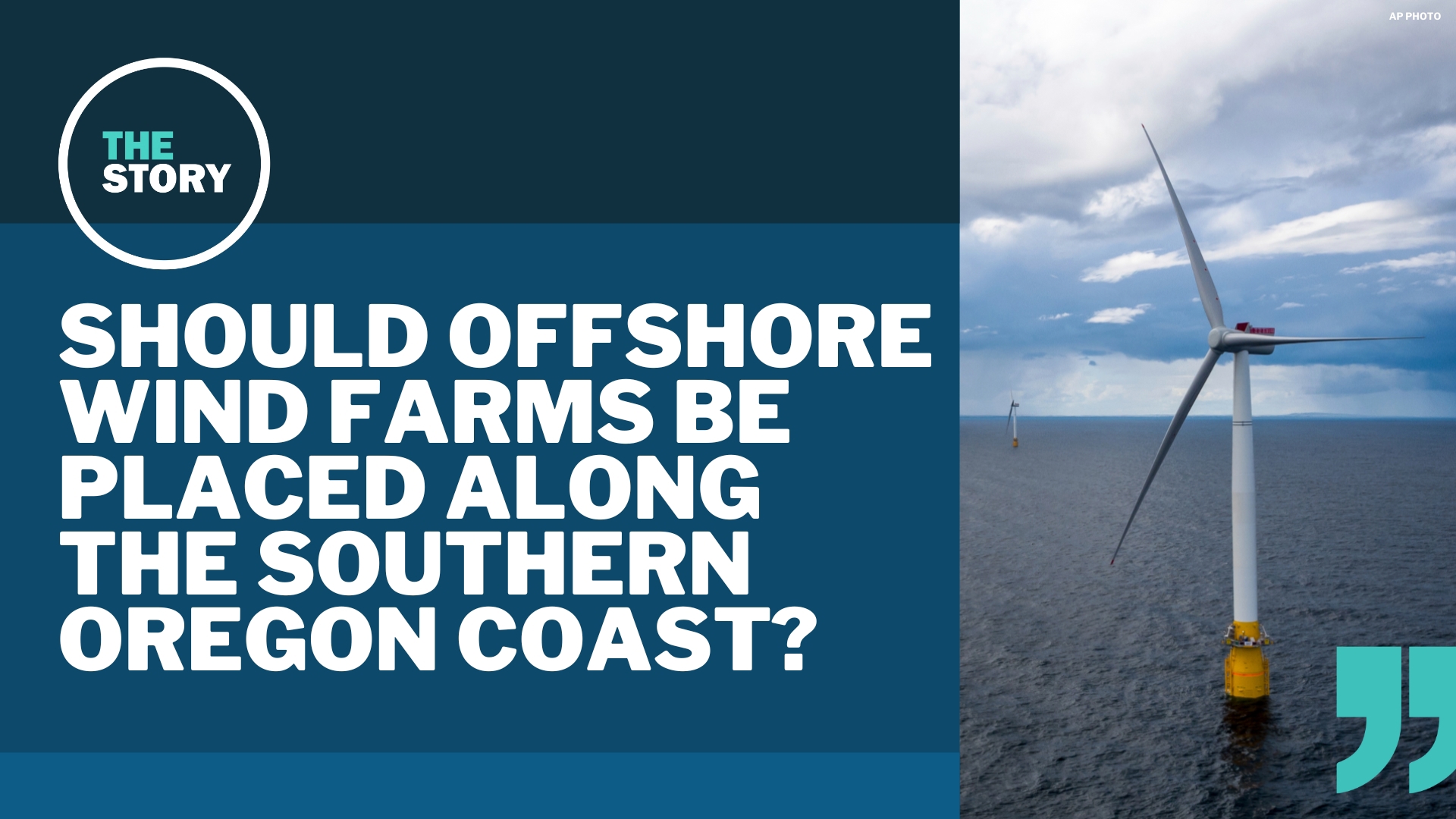PORTLAND, Ore. —
Two southern Oregon counties will give voters a chance to have their say on the development of offshore wind energy in the state.
County commissioners in Curry and Coos counties voted unanimously last week to send questions to voters in the November election asking if the counties should oppose the development of wind turbines in two areas identified by the federal government last year.
The votes will be non-binding and will act more as a way for commissioners to gauge public sentiment than anything else.
Rod Taylor, a commissioner in Coos County, said he’s seen alignment among his constituents on the issue.
“We had a town hall on this subject and it was it was attended by a broad base of people — both conservatives and liberals,” he said at the meeting. “I don't recall hearing one person at that town hall who was in favor of this wind energy project.”
The federal Bureau of Ocean Energy Management has been working to develop floating offshore wind farms in Oregon for several years already. Earlier this year, they announced the finalization of two areas — one about 30 miles off the coast of Coos Bay, the other nearly 20 miles out from Brookings, near the California border.
As the process has moved along, several groups have been wary.
Coastal tribes have expressed concern over the environmental impacts of wind turbines, and members of the fishing industry have worries that they’ll be shut out of important fishing grounds.
“We're just really concerned about being displaced out of our traditional fishing areas,” said Heather Mann, executive director of the Midwater Trawlers Cooperative, based in Newport. “You will not be able to fish with trawl gear, for example, or long lines within turbine farms. It's just not going to be possible.”
Common among the complaints is that the federal government has not meaningfully engaged with the communities that will be most affected by offshore wind energy.
Mann said she thinks that’s what led the commissioners to put the issue to voters.
“I think it's a response largely to feeling as if our voices are not being heard in coastal communities and we have folks from the valley or the federal government telling us what's good for us,” she said. “I think the Commissioners are tired of providing input and feedback and listening to all their constituents voice their concerns while the federal government continues to just move forward.”
Mann conceded that the outcome of the vote in November, even if it calls to oppose wind energy, will be largely symbolic.
But with the identified wind energy areas slated for auction in October, she thinks the commissioners are looking for any way they can find to show that, to many people on the coast, offshore wind is not welcome.
“it's frustrating to continue to have folks from the valley telling us in coastal communities what's good for us,” she said. “It's our David and Goliath fight is what it feels like.”

